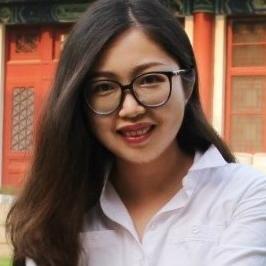
Wei Yang
Biography
Expertise:
Wei Yang is a PhD candidate in Linguistics and Literary Studies in the Faculty of Arts and Philosophy at Vrije Universiteit Brussel (VUB) and a member of the VUB Centre for Literary and Intermedial Crossings (CLIC). She is now working towards a PhD on Chinese Danmei subculture under the supervision of Prof. Inge Arteel (VUB).
Abstract
This dissertation traces the changing paradigms through which the ideal model of gender relations is depicted in Danmei texts. It explores how gender reformation is rendered intelligible through representations of the power structure in the romantic relationship between male homosexual couples imagined by women. It is interested in how Danmei storytelling responds to, interacts with, and plays a part in formations and transformations of Chinese gender patterns.
By reading three Danmei texts in close relationship to their social-cultural contexts, the dissertation will continue to analyze the shifting understandings and expectations of women for themselves and their living conditions, from the vantage point of research into changing patterns of their imagination of love and family in Danmei as the alternative universe. The changes in dominant Danmei textual paradigms are responses to the overriding cultural and institutional fluctuations regarding gender issues at different stages and in various aspects. Specifically, the shifts in social expectations for women, the transformations of family planning policy, the rise of commercialization and consumerism, the fierce conflicts between various notions of sex and gender norms that are presented in Internet debates, as local versions of the overall reform, have in various aspects affected the settings, constructions, and values of Danmei narratives.
Textual readings of three fictions- Phoenix in the sky, The Sword of Galaxy, Silent Reading- in their respective social and intellectual contexts are conducted to trace the process of China’s gender reformation. This will be an effort to study and understand the constantly changing self-awareness and appeal of Chinese women, which are hidden behind the uncanny Danmei love fantasies. Moreover, I suppose that the Danmei subculture has, more or less, inspired and promoted the process of gender equality. How this kind of promotion is achieved will also be a supplementary focus of this research.
In short, I would like to unearth and map the gender reformation of China, more specifically the changes in female self-awareness and gender power structure, by tracing the shifting dominant paradigms of love stories in Danmei texts; I also hope to answer a core question: Whether Danmei subculture helps to achieve gender equality, and if so, then by what means?
Location
Pleinlaan 2
1050 Brussels
Belgium
